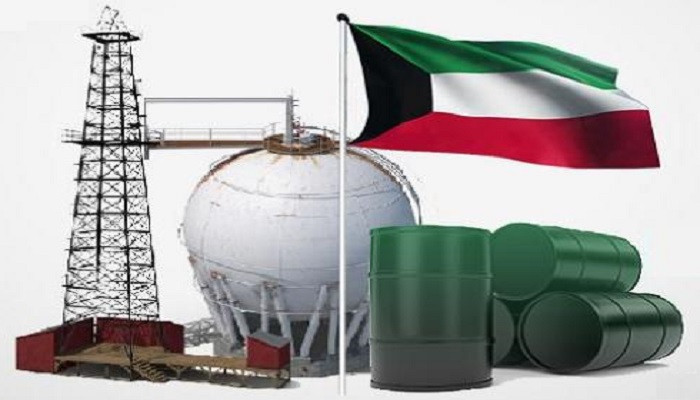Fitch Solutions said that Kuwait will struggle to reduce its dependence on oil and gas due to the push for increased production until 2040, pointing out that oil export revenues will be necessary to help the country implement Kuwait Vision 2035, in which it seeks to diversify its economy and reduce its dependence on oil and transform it into a financial and commercial center at the international and regional levels.
The agency expected, in a report on the Kuwaiti oil sector, that this sector would continue to play an important role in the economy to move forward to achieve the government's long-term goals, noting that financial revenues from The oil sector, which accounts for 90% of Kuwait's annual revenue, makes alternative plans for economic diversification difficult.
She said: The agency's risk identification team determined that the majority of Kuwaiti non-oil sectors, such as manufacturing and services, are still in the development stage, which means that any major economic transformation is far away. As for oil, it will be a high-risk project that requires a large investment.
As a result, it is expected that Kuwait's current account surplus will be supported almost entirely by the oil sector for the remainder of the decade, indicating that fiscal revenue from oil production and exports will remain essential. To meet the future development needs of Kuwait in conjunction with the increased spending on infrastructure projects developed within the Kuwait Plan 2035.
Fitch pointed out that Kuwait will need large oil investments at home to achieve the required strong production levels by 2040, which we believe are ambitious due to the country's history of not achieving production targets. Previous set by the state.
The agency continued: Our 10-year forecast shows that the production of crude oil, natural gas and refined petroleum materials will average about 3.4%, to reach 3.68 million barrels per day in 2030. We expect Kuwait to maintain the targeted growth path for 2040 to produce 4 million barrels per day of oil, provided that the country continues to invest in new technologies to increase production from its current fields and increase the absorption of oil resources.
The agency stressed that due to Kuwait's dependence on oil revenues, the low crude price environment may threaten the state oil companies in the country, reducing their ability to invest and commit to large oil projects in the long term. In the short term, technical challenges in extracting heavy crude oil from Kuwait's northern fields continue to pose a threat to our expectations for the country's oil production.








































